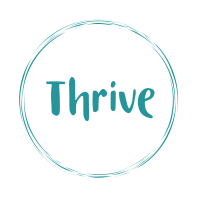In my practice as a professional supervisor, I am often asked by both occupational therapists and other clinicians alike “what exactly is supervision?. Engaging in Professional Supervision is both a responsibility and a right for all health and human services professionals. Some clinicians are advised by their managers to seek professional supervision, for some (like occupational therapist) regular professional supervision is an expectation of their professional registration and for others, seeking supervision is a form of obtaining support for professional sustainability and growth. And yet, for many people, there remains some confusion about what professional supervision is and is not.

This post will discuss the key functions of professional supervision and what supervision is and is not. But first, let’s start with a definition of supervision:
The OTBNZ Code of Ethics defines professional supervision as: “A structured intentional relationship within which a practitioner reflects critically on her/his work, and receives feedback and guidance from a supervisor, in order to deliver the best possible service to consumers. Professional supervision may incorporate any aspect of a professional role e.g., clinical, managerial, or cultural, and be one to one, one to group” (OTBNZ, 2015)
Key functions of supervision
Using the above definition, the key functions of supervision are as follows:
- Supervision is based on an Intentional relationship. It involves the supervisee choosing the right person to support them and both parties co-creating an ongoing interaction that can change over time in response to the evolving needs of the supervisee. The relationship is always mutually respectful, psychologically safe and supports professional and personal wellbeing.
- Supervision fosters learning and development through reflection, guidance, questioning and exploration. Supervision attends to professional development and the learning of new skills and knowledge. It also attends to personal wellbeing to develop professional resilience and sustain ones-self in the work role.
- Supervision enables optimum practice. It supports the supervisee to perform competently to the top of their professional scope, it facilitates the taking of opportunities to enhance one’s learning, it assists with identifying learning goals and supporting their achievement. Supervision helps to keep a person moving forward or going deeper to be the best practitioner possible.
- Ensures optimum benefit to consumers of services within the cultural, social and environmental context. It always focusses on helping the supervisee to achieve the best outcomes for their clients, in a safe, culturally appropriate, ethically sound, professional and evidence informed way.
Based on my practice, reading and learning about supervision, here is a guide to thinking about what supervision IS and IS NOT
Supervision IS |
Supervision IS NOT |
| A place to receive support | An informal chat or catch up |
| An opportunity to explore ideas for learning and the professional journey | A complaining or gossip session |
| A time to reflect on the learning opportunities presented by work, both positive and negative and set goals for further learning | Personal therapy |
| Encouragement and resourcing for transitioning along the professional continuum | Negative, judgemental, or toxic |
| A reflective space for considering one’s professional growth from a developmental perspective | Case management, caseload review |
| A psychologically safe space to share and receive support and engage in co-created problem solving | Performance review or line management |
| An environment for developing tools and nurturing a desire for life-long learning | Directives or advice |
| A space for replenishment and sustaining of the professional self | A place to come to be given answers or have problems solved. |
| An opportunity for developing skills, knowledge, values and culture | Something one does to simply meet the expectations of others or the system |
| A space for reflection on the work-person interaction, considering how work affects the person and the person affects the work | Where the organisational agenda, strategy, KPIs or performance are the focus |
| An opportunity to explore how to become more self-aware and self-actualised. |
Reflection:
- How well does your current professional supervision meet the key functions identified above?
- Do you feel your supervision meets some or all of what supervision IS?
- Do you want to know more about the supervision Catherine and Louise at ThriveOT provide? If so, get in touch with us today. www.thriveot.co.nz
References.
Bihary, M. (2020) Professional supervision training. (Workshop manual). Delta Consulting Pty, Ltd.
Skovholt, T.M., Trotter-Mathison, M. (2016). The resilient practitioner: Burnout and compassion fatigue prevention and self-care strategies for the helping professions. 3rd Ed. New York. Routledge.
The occupational therapy board of New Zealand. (2015) Code of ethics for occupational therapists.

[…] spielcasino […]
[…] cipro for sale online […]
[…] cheap haridra […]
[…] ventolin prices […]
[…] montelukast 10mg […]
Why is it important for professional supervision to be a psychologically safe space? Regard Telkom University
I came across your site wanting to learn more and you did not disappoint. Keep up the terrific work, and just so you know, I have bookmarked your page to stay in the loop of your future posts. Here is mine at 46N about Cosmetics. Have a wonderful day!
This is some awesome thinking. Would you be interested to learn more? Come to see my website at UY7 for content about Advertise.
[…] clomid 50mg for male […]